Films from the country "portugal", sorted by revenue
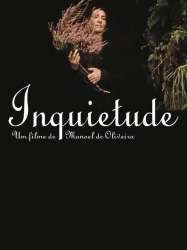
Anxiety (1998)
, 1h50Directed by Manoel de Oliveira
Origin Portugal
Genres Drama
Actors Leonor Baldaque, Irène Papas, Rita Blanco, Luís Miguel Cintra, Manoel de Oliveira, Diogo Dória
C'est l'adaptation du conte A Mãe de um Rio d'Agustina Bessa-Luís.
 , 1h35
, 1h35Directed by Manoel de Oliveira
Origin Portugal
Genres Drama, Biography
Actors Marcello Mastroianni, Jean-Yves Gautier, Leonor Silveira, Leonor Silveira, Diogo Dória, Diogo Dória
French actor Alfonso visits the Portuguese village where his father once left. He is accompagnied by the film director Manoel who hereby returns to the places of his childhood. Together with two other actors who serve as translators they make it to the remote village and meet the estranged kin.

Ossos (1997)
, 1h34Directed by Pedro Costa
Origin Portugal
Genres Drama
Themes Films about immigration
Actors Isabel Ruth, Inês de Medeiros
L'errance dramatique d'un couple et d'un bébé dans les rues d'un quartier difficile de Lisbonne.
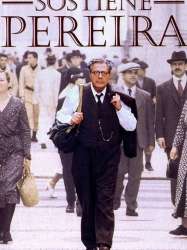
Pereira Declares (1995)
, 1h44Directed by Roberto Faenza
Origin Portugal
Genres Drama
Themes Political films
Actors Marcello Mastroianni, Joaquim de Almeida, Daniel Auteuil, Nicoletta Braschi, Stefano Dionisi, Marthe Keller
In Lisbon, during the António de Oliveira Salazar's Estado Novo dictatorship, Pereira (Marcello Mastroianni), a journalist that works in the culture section of a newspaper, discovers the real dark side of the regime when he meets and helps an anti-fascist young man Monteiro Rossi (Stefano Dionisi).

Party (1996)
, 1h35Directed by Manoel de Oliveira
Origin Portugal
Genres Comedy-drama
Actors Michel Piccoli, Irène Papas, Leonor Silveira, Leonor Silveira, Rogério Samora, Sofia Alves

The Eyes of Asia (1997)
, 1h26Directed by João Mário Grilo
Origin Portugal
Genres Drama, Historical
Themes Films about religion
Actors Geraldine Chaplin, Yoshi Oida
Nakaura of Julian, a priest of the Society of Jesus, was one of four young ambassadors sent to Rome by the Jesuits in 1538, as proof that Japan had converted to Christianity.
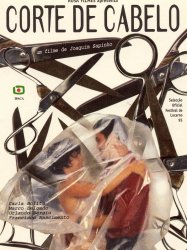
Haircut (1996)
, 1h31Directed by Joaquim Sapinho
Origin Portugal
Genres Drama
Actors José Raposo
The film is set in Lisbon, and tells the story of a day in the life of Rita and Paulo, a Portuguese young couple of the 90's, belonging to the first generation of Portuguese to grow up inside the European Union. The fast changing city around them makes them wish to break with all traditions and live the day the get married (only civil marriage) like it is an ordinary day. However, for some reason Rita wants to be absolutely sure Paulo loves her and decides to cut her long black hair short before the ceremony. Rita and Paulo still get married, but Rita's haircut would drastically and unexpectedly change their relationship.

Down to Earth (1995)
, 1h50Directed by Pedro Costa
Origin Portugal
Genres Drama
Themes Films set in Africa, Seafaring films, Transport films
Actors Isaac de Bankolé, Édith Scob, Inês de Medeiros, Luís Miguel Cintra, Isabel de Castro
The film tells a story of Mariana, a nurse who leaves Lisbon to accompany an immigrant worker in a comatose sleep on his trip home to Cape Verde. The devoted Portuguese nurse took a journey only to find herself lost in abstract drama.
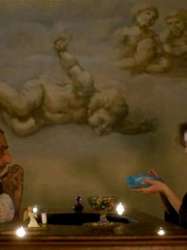
God's Comedy (1996)
, 2h43Directed by João César Monteiro
Origin Portugal
Genres Drama, Comedy
Actors João César Monteiro, Mário Barroso, Jean Douchet, Ana Padrão, Nuno Lopes
Éloge de la folie à travers les tribulations de M. Jean de Dieu, homme paisible et glacier de son état qui collectionne à ses moments perdus des poils pubiens féminins qu'il classe dans un précieux album qu'il appelle "le Livre des pensées".

Adam and Eve (1995)
, 1h44Directed by Joaquim Leitão
Origin Portugal
Genres Drama
Themes Films about sexuality, LGBT-related films, LGBT-related films, LGBT-related film
Actors Maria de Medeiros, Joaquim de Almeida, Karra Elejalde, Rogério Samora, Luís Filipe Rocha
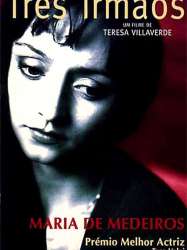
Two Brothers, My Sister (1994)
Directed by Teresa Villaverde
Origin Portugal
Genres Drama
Actors Maria de Medeiros, Evgueni Sidikhine, Laura del Sol, Mireille Perrier, Olimpia Carlisi, Luís Miguel Cintra

Blind Man's Bluff (1994)
, 1h33Directed by Manoel de Oliveira
Origin Portugal
Genres Comedy
Actors Luís Miguel Cintra, Diogo Dória, Ruy de Carvalho, Beatriz Batarda, Diogo Dória, Isabel Ruth

The End of the World (1993)
, 1h4Directed by João Mário Grilo
Origin Portugal
Genres Drama
Actors Adelaide João, Alexandra Lencastre, Henrique Viana
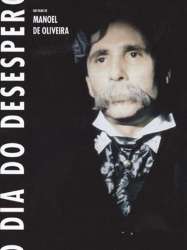
Day of Despair (1992)
, 1h15Directed by Manoel de Oliveira
Origin Portugal
Genres Drama, Biography
Actors Mário Barroso, Luís Miguel Cintra, Teresa Madruga, Diogo Dória, Diogo Dória, Ruy de Carvalho

The Divine Comedy (1991)
, 2h20Directed by Manoel de Oliveira
Origin Portugal
Genres Drama
Actors Maria de Medeiros, Luís Miguel Cintra, Miguel Guilherme, Mário Viegas, Leonor Silveira, Leonor Silveira
Dans un asile d'aliénés, loin de la Divine Comédie de Dante, des personnes se croisent, hallucinées ou lucides, rejouant des textes littéraires ou philosophiques. Certains se prennent pour des figures bibliques, Adam et Ève, Jésus, Lazare, Marie, d'autres pour des personnages de romans, Raskolnikov, Ivan Karamazov, ou encore Frédéric Nietzsche... Oliveira développe là une réflexion sur le temps présent et ses valeurs.
 Connection
Connection